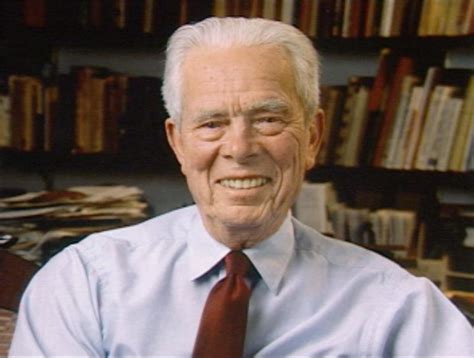Цитата Джона Холдрена
Необходимо начать масштабную кампанию по восстановлению высококачественной окружающей среды в Северной Америке и де-развитию Соединенных Штатов... Де-развитие означает приведение нашей экономической системы (особенно моделей потребления) в соответствие с реалиями экологии и глобальная ситуация с ресурсами ... Перераспределение богатства как внутри стран, так и между ними абсолютно необходимо, если мы хотим обеспечить достойную жизнь каждому человеку.
Темы цитат
Абсолютно
Америка
Среди
Существ
Оба
Приносят
Кампанию
Потребление
Достойная
Достойная Жизнь
Развитие
Развитие
Распределение Богатства
Экология
Экономическая
Экономическая Система
Окружающая среда
Необходима
Каждый
Глобальный
Высокое
Высокое Качество
Человеческое
Существо
Жизнь
Жизнь
Линия
Массивные
Средства
Должны
Нации
Северная
Северная Америка
Наши
Образцы
Обеспечивают
Качество
Реальности
Перераспределение
Перераспределение
Ситуация
с восстановлением ресурсов богатства
Система
штатов Соединенные
Штаты
Богатство
внутри
Связанные цитаты
Необходимость де-развития ставит перед нашими экономистами серьезную проблему. Они должны создать стабильную экономику с низким уровнем потребления, в которой будет гораздо более справедливое распределение богатства, чем в нынешней. Перераспределение богатства как внутри стран, так и между ними абсолютно необходимо, если мы хотим обеспечить достойную жизнь каждому человеку.
Соединенные Штаты твердо привержены процессу международного сотрудничества МГЭИК в области глобального изменения климата. Мы считаем жизненно важным, чтобы сообщество наций собралось упорядоченным, дисциплинированным и рациональным образом для обзора истории нашей глобальной окружающей среды, оценки потенциала будущего изменения климата и разработки эффективных программ. Состояние науки, социальные и экономические последствия и соответствующие стратегии — все это важнейшие компоненты глобального решения. Ставки здесь очень высоки; последствия, очень значительные.
Соединенные Штаты больше не могут полагаться на иностранные государства, такие как Китай, чтобы выручить нас из-за нашей экономической безответственности. Мы должны жить по средствам и реализовывать творческие рыночные решения, чтобы вернуть американцам рабочие места и создать экономические возможности.
Норвегия, Исландия, Австралия, Канада, Швеция, Швейцария, Бельгия, Япония, Нидерланды, Дания и Великобритания входят в число наименее религиозных обществ на земле. Согласно Докладу о человеческом развитии Организации Объединенных Наций (2005 г.), они также являются самыми здоровыми, о чем свидетельствуют ожидаемая продолжительность жизни, грамотность взрослого населения, доход на душу населения, уровень образования, гендерное равенство, уровень убийств и младенческая смертность. . . . И наоборот, пятьдесят стран, которые в настоящее время занимают самые низкие позиции по индексу человеческого развития Организации Объединенных Наций, являются непоколебимо религиозными.
Разрыв между богатыми и бедными увеличивается в большинстве стран и внутри них. Политические и социальные последствия неравномерного размещения энергетических и других полезных ископаемых имеют острые последствия. Численность населения продолжает расти. Глобальная окружающая среда демонстрирует признаки повсеместного ухудшения. И природная, и социальная среда становится все более уязвимой перед катастрофическими потрясениями… Однако может быть обнадеживающим вызовом возможность того, что из-за борьбы с этими реальностями человеческая раса может немного приблизиться к тому, чтобы вести себя так, как если бы она действительно была единым целым. семья.
Все нации деградируют и потребляют окружающую среду до предела своих возможностей. За последние 15 лет в США мы добавили 1300 городов с населением более 100 000 человек. Когда окружающая среда вынуждена подавать главу 11, экология рушится. Нации восстанавливаются после войны, но не после отказа экосистемы. Состояние нашей окружающей среды более угрожающее, чем все войны. Это навсегда.
Соединенные Штаты должны признать, что доступ к надежной и недорогой энергии является основой для экономического роста и глобальной конкурентоспособности. И нация должна перейти от препятствования разработке ископаемых видов топлива — что в значительной степени является нашим сегодняшним подходом — к ее содействию. Нам нужны все формы энергии, чтобы наша экономика оставалась сильной.
Соединенные Штаты Америки обеспечивают свободу, я бы сказал, разрешают, позволяют, не ограничивают свободу, с которой мы все родились, и которая позволяет каждому из нас заниматься тем, что мы определяем как качество жизни. Доступ к качественным услугам и продуктам, обеспечивающим качество жизни, не имеет себе равных в Соединенных Штатах Америки.
Нации — это политические и военные образования, как и блоки наций. Но из этого не обязательно следует, что они также являются основными, выдающимися сущностями экономической жизни или что они особенно полезны для исследования тайн экономической структуры, причин подъема и упадка богатства. В самом деле, неспособность национальных правительств и блоков наций заставить экономическую жизнь выполнять свои приказы предполагает некоторую существенную неуместность.
Человеческая природа такова, что мир неизбежно должен быть относительным состоянием. Сущность жизни — борьба и соревнование, и в этом смысле совершенный мир — почти бессмысленная абстракция. Борьба и соперничество стимулируют, но когда они вырождаются в конфликт, обычно это одновременно разрушительно и разрушительно. Цель таких политических институтов, как Организация Объединенных Наций, состоит в том, чтобы провести черту между борьбой и конфликтом и дать возможность нациям оставаться по правильную сторону этой черты.
Наши ценности определяются тем, что мы будем терпеть, когда это делают с другими. Чувство добродетели каждого принижается нынешней реальностью. В глобальную экономическую систему заложен революционный принцип, ожидающий более широкого признания: человеческое достоинство неделимо. Несмотря на культурные расстояния и нации, через огромные пропасти богатства и бедности, даже самые незначительные из нас имеют право на достоинство, и нет никакого оправдания их жестокости в погоне за торговлей.
Правительство Соединенных Штатов во главе с Линдоном Джонсоном предлагает заняться качеством жизни американцев. И это нечто очень новое в политической теории свободных наций. Качество жизни до сих пор зависело от качества людей, которые задавали тон этой жизни, и они были ее священниками и поэтами, а не ее бюрократами.
Три столпа развития (экономический, социальный и экологический) должны укрепляться вместе. Но очевидно, что два столпа — экономический и социальный — являются вспомогательными и подкрепляются третьим: динамичной глобальной экологией. Ни доллары, ни наш вид не переживут нашу планету. Земля может счастливо выжить без людей и прибыли


































